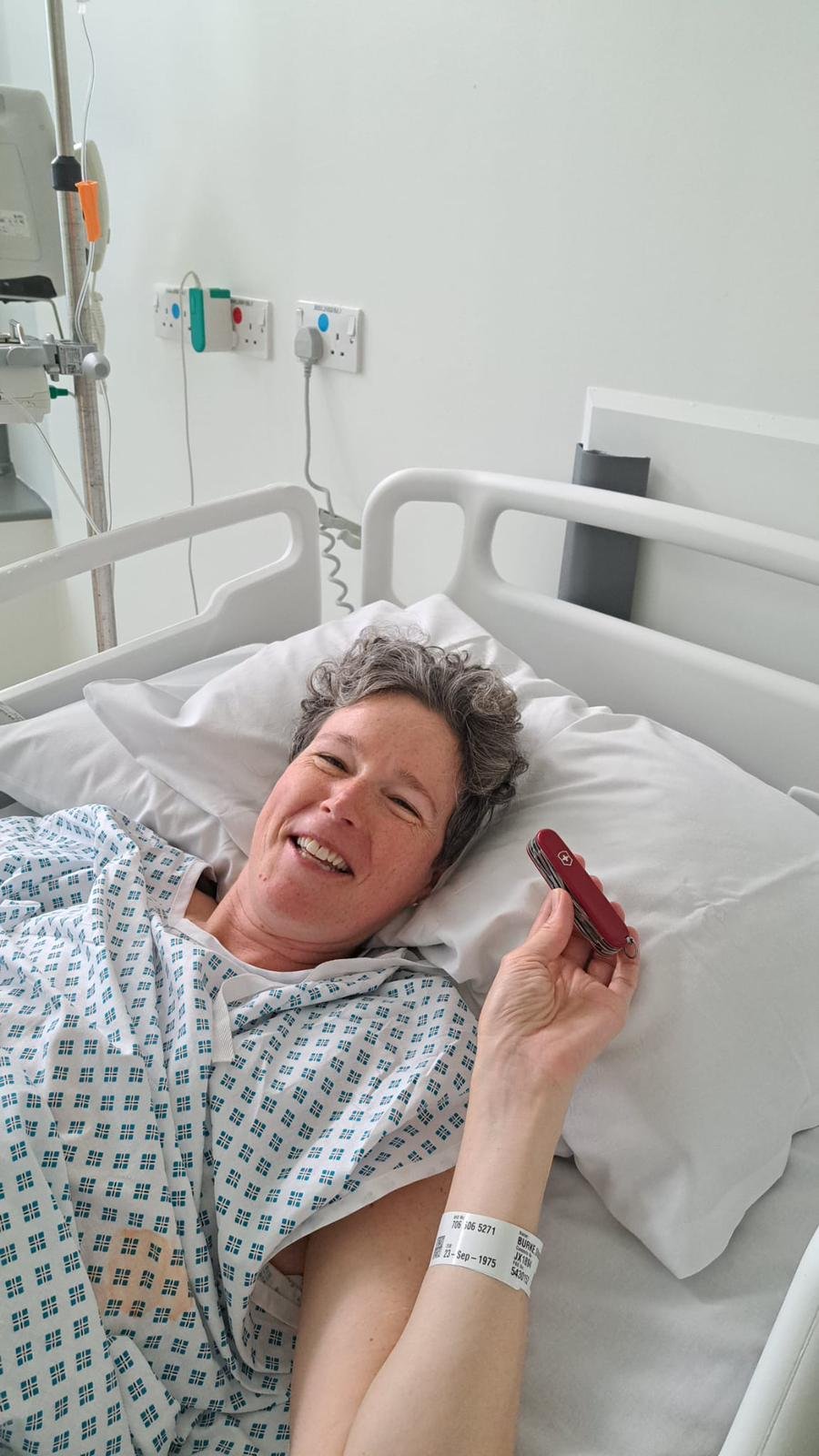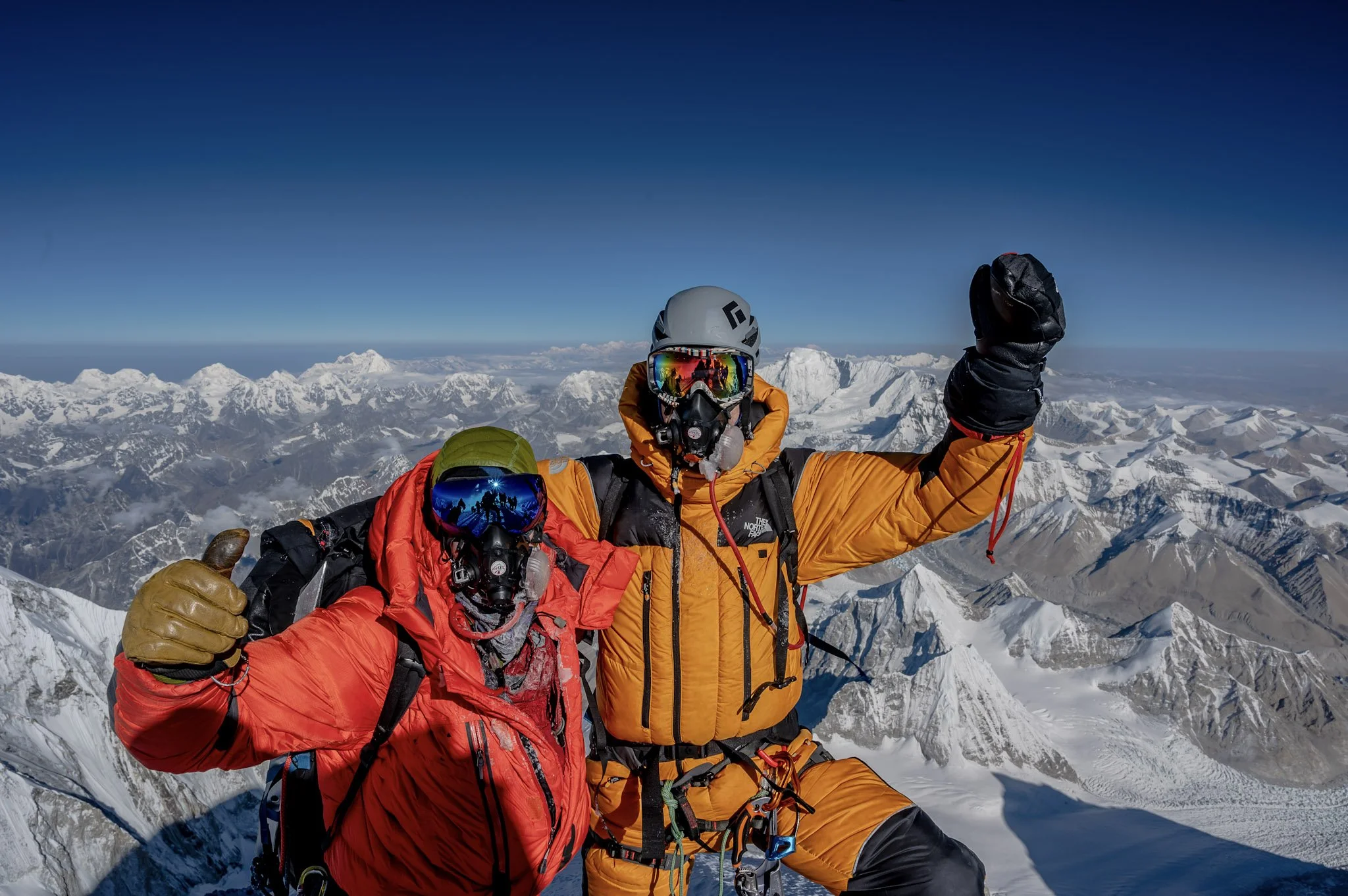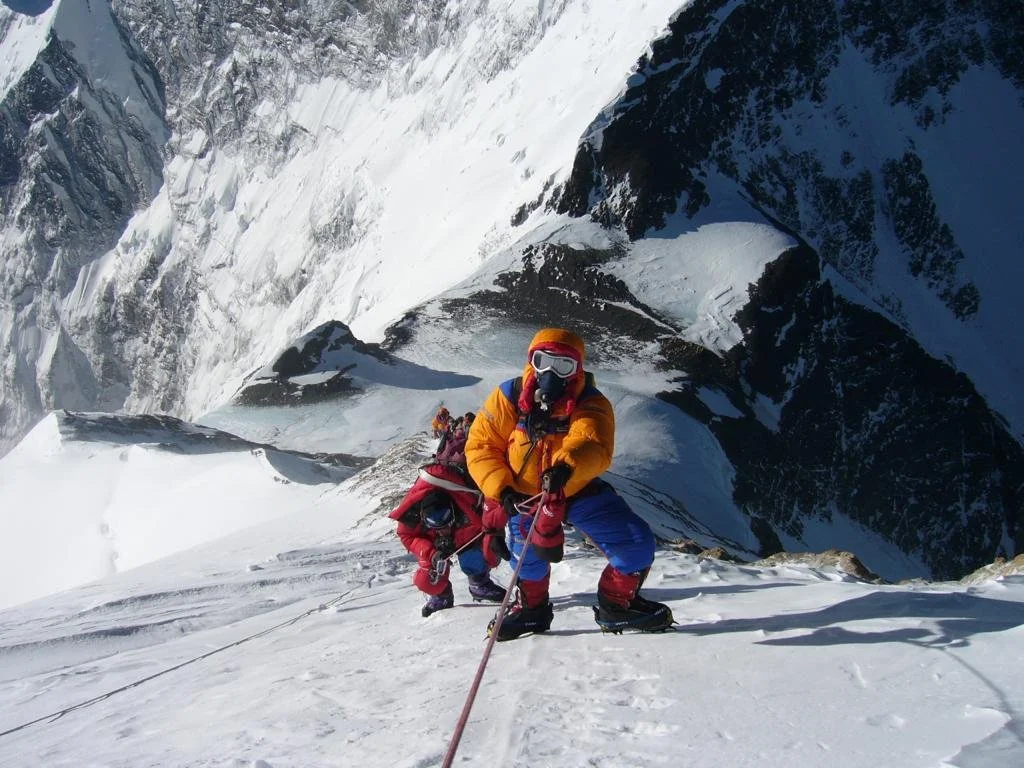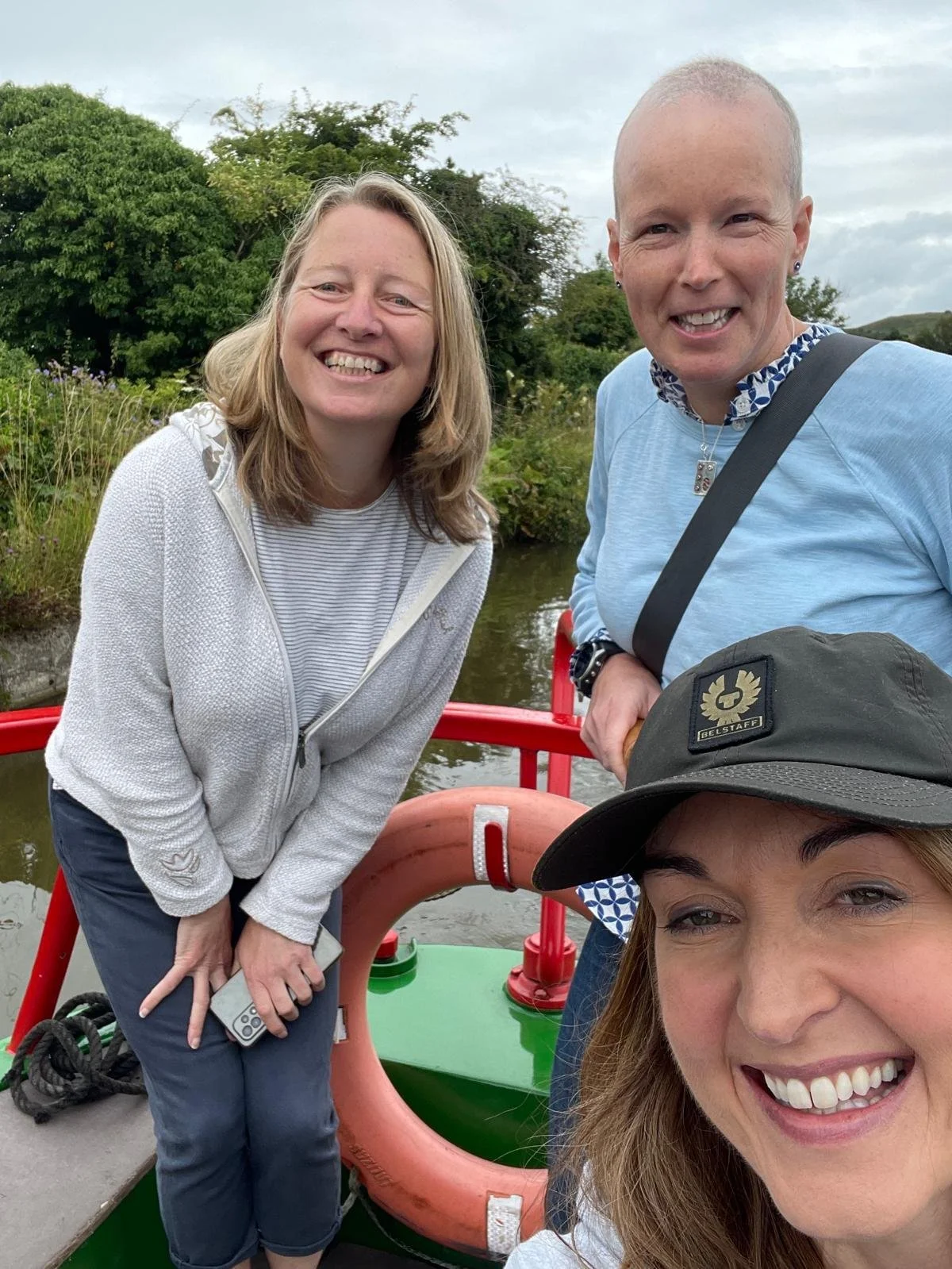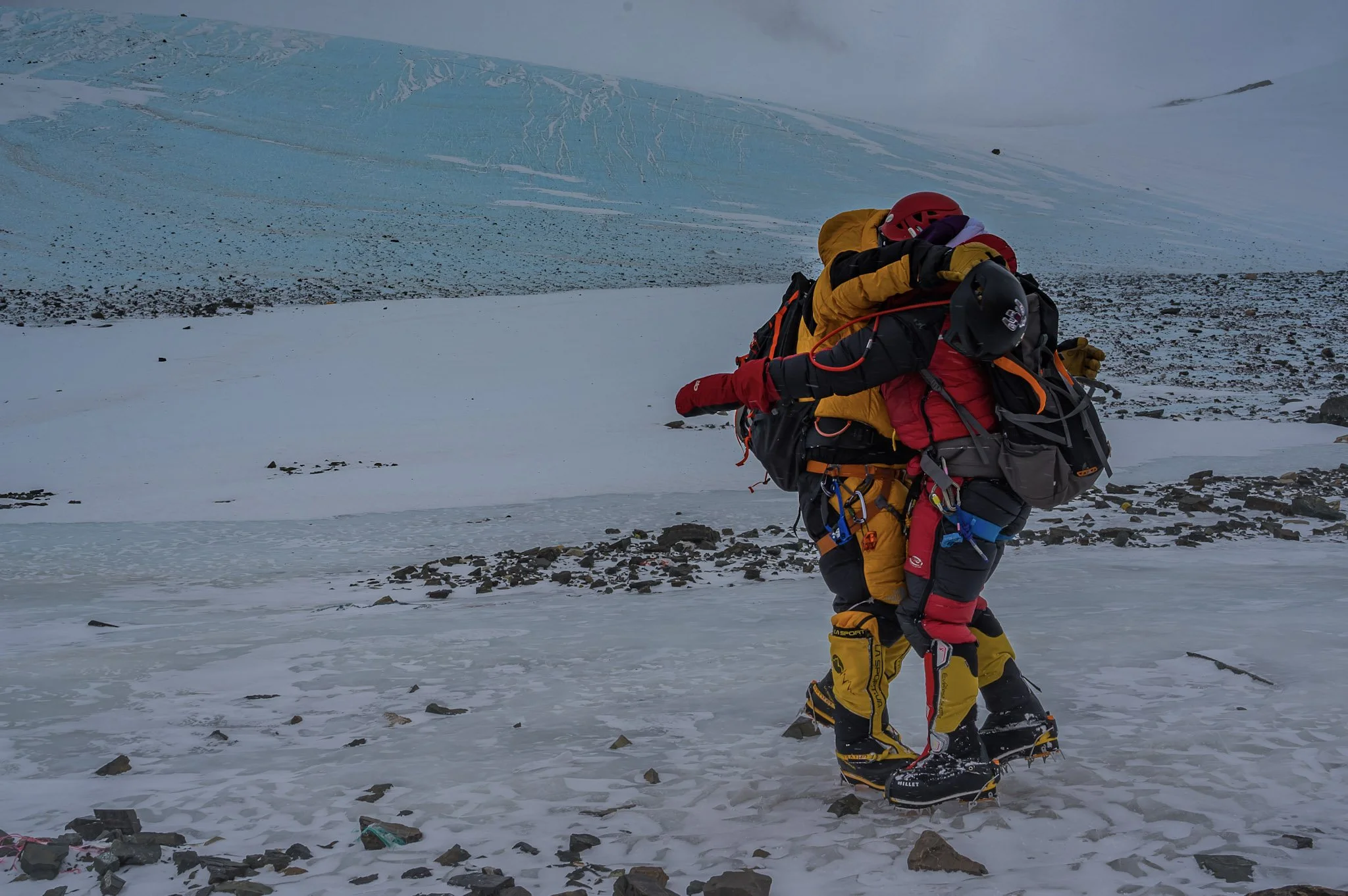
About Shaunna Burke and her ‘Dying to Climb’ Documentary
Dr. Shaunna Burke is an inspirational speaker, researcher, and mountaineer whose life stands at the intersection of high-altitude adventure, psychological resilience, and ground-breaking cancer-exercise science.
■
[ Shaunna's history ]
Mountaineering Achievements
Shaunna reached a historic milestone in 2005 as the second Canadian woman to summit Mount Everest. While climbing the mountain, she simultaneously pursued her PhD, delving into the psychology that drives climbers to the limits of human performance.
In 2004, Shaunna was featured in Discovery Channel’s award-winning miniseries Ultimate Survival: Everest, where she was forced to abandon the climb after a severe windstorm at Camp 4.
Her high-altitude journey extends beyond Everest, with climbs including Aconcagua (Argentina), Mount Elbrus (Russia), and Mount Kilimanjaro (Tanzania), Island Peak and Lobuche East (Nepal), and the traverse of Mont Blanc (Italy to France)—each climb reflecting the same theme central to her work: pushing through discomfort to discover new strength.
The 2025 Everest Marathon & A Personal Battle
In 2024 Shaunna was diagnosed with incurable stage-four breast cancer. Rather than retreat, she leaned into her training, science and mindset. She designed a tailored diet and exercise plan, running to her chemotherapy and radiotherapy appointments to keep her body moving and her mind focused.
On 29 May 2025 she completed the world’s highest marathon — the Everest Marathon (starting at 5,356 m and finishing at 3,446 m) — in 7h 41m, placing 4th in her women’s foreigner category. Along the way she also climbed Lobuche East. This event raised vital funds for her selected cancer charity, MacMillan Cancer Support.
Her journey was captured in a feature documentary by Saga Media Film, and in spring 2026, she plans to return to Everest to attempt the summit—proving that even with incurable cancer, the climb continues.
Reflecting on the endeavour, she said:
“Life doesn’t stop with an incurable cancer diagnosis.”
Her journey is not only a testament to elite physical performance but also a vivid, living example of how research, resilience and lived experience can converge.
Early Life & Athletic Background
Shaunna grew up in Québec, Canada, and distinguished herself as a two-sport athlete at McGill University , excelling in both alpine skiing and rugby.
An elite Alpine Ski Racer, Shaunna Burke represented Canada on the international stage, earned a U.S. collegiate skiing scholarship, and achieved Academic All-American honours three years in a row.
Fueled by discipline, endurance, and a fierce competitive spirit, she embarked on a remarkable journey that tested the extremes of both terrain and human performance, pushing the very limits of what’s possible.
Academic & Research History
Shaunna’s academic journey bridges sport psychology, extreme-environment performance, and exercise oncology.
Key Academic Highlights:
Her master’s/PhD work at University of Ottawa included the publication “Mental strategies of elite Mount Everest climbers” (co-authored with Terry Orlick) which analyzed the mental preparation of climbers.
At University of Leeds she became Associate Professor in Exercise & Health Psychology, specialising in prehabilitation and rehabilitation strategies for cancer patients—to help them build strength, resilience and physical capacity before, during and after treatment.
Her work has been funded by organisations such as Macmillan Cancer Support, Yorkshire Cancer Research and Cancer Research UK.
Today, Shaunna is a sought-after motivational speaker, inspiring audiences across corporate, academic, and public sectors with her unique blend of science, adventure, and resilience—showing how physical and psychological strength can be cultivated even in the face of life’s greatest challenges.
The Dying to Climb project is Shaunna’s personal and public exploration of what it means to keep striving, documenting a climb—not only of the mountain but of the self—while living with a terminal diagnosis.
-
Inspire – Show that a diagnosis isn’t the end of ambition; it can be a catalyst for new meaning.
Educate – Use the climb to highlight how physical activity, psychology and behaviour matter in treatment, recovery and quality of life.
Document – Create an authentic record of the journey—its highs, lows, summit days, base-camp nights, and everything in between.
Connect – Link the mountaineering community, the cancer community and the research community to build shared understanding and motivation.
-
Humanising cancer: So often cancer narratives focus on survival or loss. This project is about living fully, setting audacious goals, and showing that each step matters.
Bridging research and lived experience: As a researcher and now a patient, Shaunna stands at a rare intersection—bringing her academic lens to her own body and journey. The project becomes a living case-study of the theories she’s studied.
High-altitude symbolism: Mountains = risk. Vertigo. Uncertainty. The Everest region becomes a metaphor for the cancer journey—the climbs, the drop-offs, the oxygen-thin margins, every footstep counts.
Amplify voices: By documenting the journey she gives voice to everyone living with incurable illness who still dreams big, still trains, still pursues.
Research legacy & outreach: Along the way, the project will document altitude training, resilience strategies, the role of exercise in treatment tolerability and mental health—extending Shaunna’s research footprint into new terrain.
-
Pre-expedition training: altitude protocols, physical conditioning, diet, mindset.
The climb/marathon in Nepal: the ascent, the race, the terrain, the high-altitude challenge, the team, the local communities.
Personal reflections: coping with illness, managing treatment, staying motivated, harnessing research to self.
Outreach & legacy: the academic spin-offs, seminars, talk engagements, partnerships with cancer organisations, research collaborations in Himalayan communities.
Impact: fundraising for Macmillan and other cancer-care charities, raising awareness of exercise oncology, and demonstrating what’s possible.
-
Because many people believe that once you receive certain diagnoses, your story is over. But what if that’s precisely the moment your story changes course, becomes richer, deeper, more genuine? The Dying to Climb project reframes risk, illness, ambition and adventure into something that is both raw and hopeful. It honours the mountain (external) and the mountain (internal). It tells us something about human nature: our capacity to climb even when the path is steep, when the air is thin, when the summit may not matter so much as the step we take.
Dr. Burke has a Long History with Mount Everest
From the Discovery Channel archives — Shaunna Burke’s first Everest story. The next chapter begins in 2026.
Join the Journey
Join the Journey
We invite you to follow along: on social media, in blogs, via videos and interviews as Shaunna trains, travels, climbs and reflects. Through Dying to Climb, we hope you’ll not only witness a mountain summit—but also the summit of will, purpose and heart.
